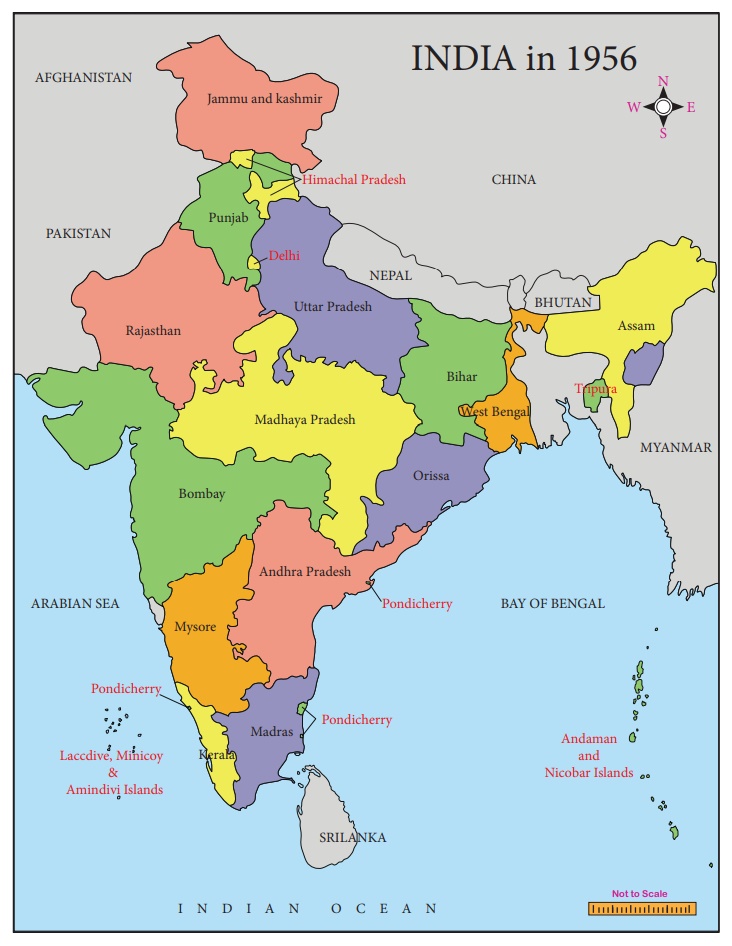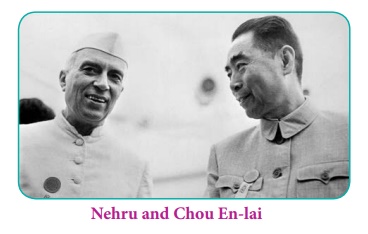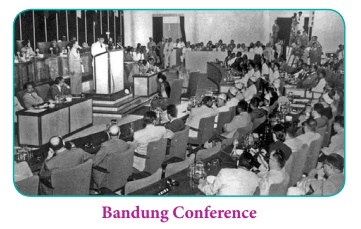Reconstruction of Post-colonial India | History - India’s Foreign Policy | 12th History : Chapter 8 : Reconstruction of Post-colonial India
Chapter: 12th History : Chapter 8 : Reconstruction of Post-colonial India
India’s Foreign Policy
India’s Foreign Policy
The
founding principles of independent India’s foreign policy were, in fact,
formulated at least three decades before independence. It evolved in the course
of the freedom struggle and was rooted in its conviction against any form of
colonialism. Jawaharlal Nehru was its prime architect.
India’s
foreign policy was based on certain basic principles. They are:
anti-colonialism, anti-imperialism, anti-apartheid or anti-racism,
non-alignment with the super powers, Afro-Asian Unity, non-aggression,
non-interference in other’s internal affairs, mutual respect for each other’s
sovereignty and territorial integrity, and the promotion of world peace and
security. The commitment to peace between nations was not placed in a vacuum;
it was placed with an equally emphatic commitment to justice.
The
context in which India’s foreign policy was formulated was further complicated
by the two contesting power blocs that dominated the world in the post-war
scenario: the US and the USSR. Independent India responded to this with
non-alignment as its foreign policy doctrine.
Before we
go into the details of non-alignment, it will be useful to look at India’s
relationship with China since independence. China was liberated by its people
from Japanese colonial expansionism in 1949, just two years after India’s
Independence. Nehru laid a lot of importance on friendship with China, with
whom India shared a long border.

India was
the first to recognize the new People’s Republic of China on January 1, 1950.
The shared experience of suffering at the hands of colonial powers and its
consequences –poverty and underdevelopment – in Nehru’s perception was force
enough to get the two nations to join hands to give Asia its due place in the
world. Nehru pressed for representation for Communist China in the UN Security
Council. However, when China occupied Tibet, in 1950, India was unhappy that it
had not been taken into confidence. In 1954, India and China signed a treaty in
which India recognized China’s rights over Tibet and the two countries placed
their relationship within a set of principles, widely known since then as the
principles of Panch Sheel.
Panch Sheel (five
virtues)
1. Mutual respect for each other's
territorial integrity and sovereignty
2. Mutual non-aggression
3. Mutual non-interference in each
other's internal affairs
4. Equality and cooperation for
mutual benefit
5. Peaceful co-existence
Meanwhile, Nehru took special efforts to project
China and Chou En-lai at the Bandung Conference, held in April 1955. In 1959,
the Dalai Lama, fled Tibet along with thousands of refugees after a revolt by
the Buddhists was crushed by the Chinese government. The Dalai Lama was given
asylum in India and it made the Chinese unhappy. Soon after, in October 1959,
the Chinese opened fire on an Indian patrol near the Kongka pass in Ladakh,
killing five Indian policemen and capturing a dozen others. Though talks were
held at various levels including with Chou En-lai, not much headway was made.

Then came
the 1962 war with China. On 8 September 1962, Chinese forces attacked the
Thagla ridge and dislodged Indian troops. All the goodwill and attempts to
forge an Asian bloc in the world came to a stop. India took a long time to
recover from the blow to its self-respect, and perhaps it was only the victory
over Pakistan in the Bangladesh war, in which China and the US were also
supporting Pakistan, that restored the sense of self-worth.
India’s
contribution to the world, however, was not restricted to its relationship with
China and the Panch Sheel. It was most pronounced and lasting in the form of
non-alignment and its concretisation at the Bandung Conference.
In March
1947, Nehru organised the Asian Relations Conference, attended by more than
twenty countries. The theme of the conference was Asian independence and
assertion on the world stage. Another such conference was held in December 1948
in specific response to the Dutch attempt to re-colonize Indonesia. The
de-colonization initiative was carried forward further at the Asian leaders’
conference in Colombo in 1954, culminating in the Afro-Asian Conference in
Bandung, Indonesia, in 1955. The Bandung Conference set the stage for the
meeting of nations at Belgrade and the birth of the Non-Aligned Movement.

The architect of independent India’s foreign
policy, indeed, was Jawaharlal Nehru and the high point of it was reached in
1961 when he stood with Nasser of Egypt and Tito of Yugoslavia to call for
nuclear disarmament and peace. The importance of non-alignment and its essence
in such a world is best explained from what Nehru had to say about it.
“So far as all these evil forces of fascism, colonialism and racialism or the nuclear bomb and aggression and suppression are concerned, we stand most emphatically and unequivocally committed against them . . . We are unaligned only in relation to the cold war with its military pacts. We object to all this business of forcing the new nations of Asia and Africa into their cold war machine. Otherwise, we are free to condemn any development which we consider wrong or harmful to the world or ourselves and we use that freedom every time the occasion arises.”
Bandung Declaration
A
10-point "declaration on promotion of world peace and cooperation,"
incorporating the principles of the United Nations Charter was adopted
unanimously:
1. Respect for fundamental human rights and for the
purposes and principles of the charter of the United Nations
2. Respect for the sovereignty and territorial
integrity of all nations
3. Recognition of the equality of all races and of
the equality of all nations large and small
4. Abstention from intervention or interference in
the internal affairs of another country
5. Respect for the right of each nation to defend
itself, singly or collectively, in conformity with the charter of the United
Nations
6. (a) Abstention from the use of arrangements of collective defence to serve any particular interests of the big powers
(b)
Abstention by any country from exerting pressures on other countries
7. Refraining from acts or threats of aggression or
the use of force against the territorial integrity or political independence of
any country
8. Settlement of all international disputes by
peaceful means, such as negotiation, conciliation, arbitration or judicial
settlement as well as other peaceful means of the parties own choice, in
conformity with the charter of the United Nations
9. Promotion of mutual interests and cooperation
10. Respect
for justice and international obligations.
Related Topics